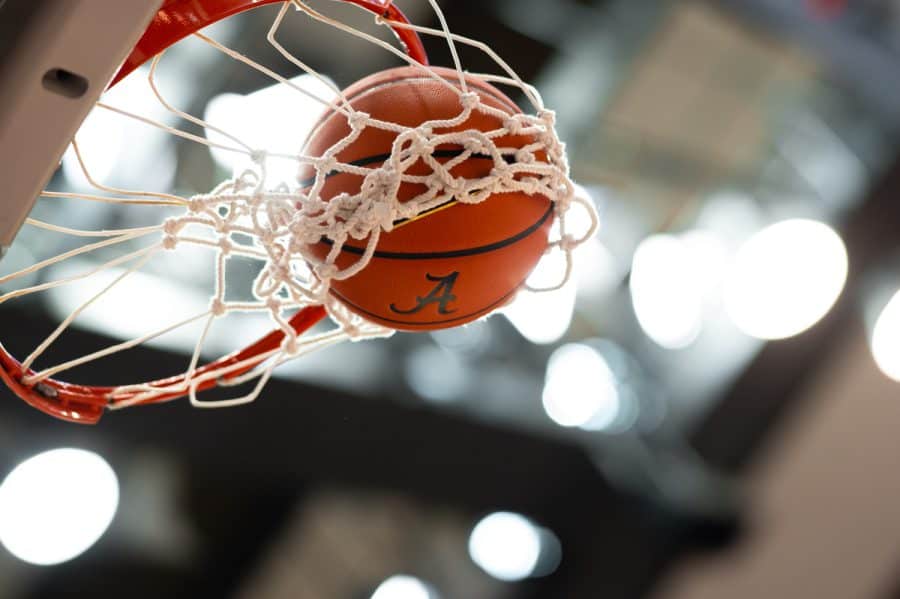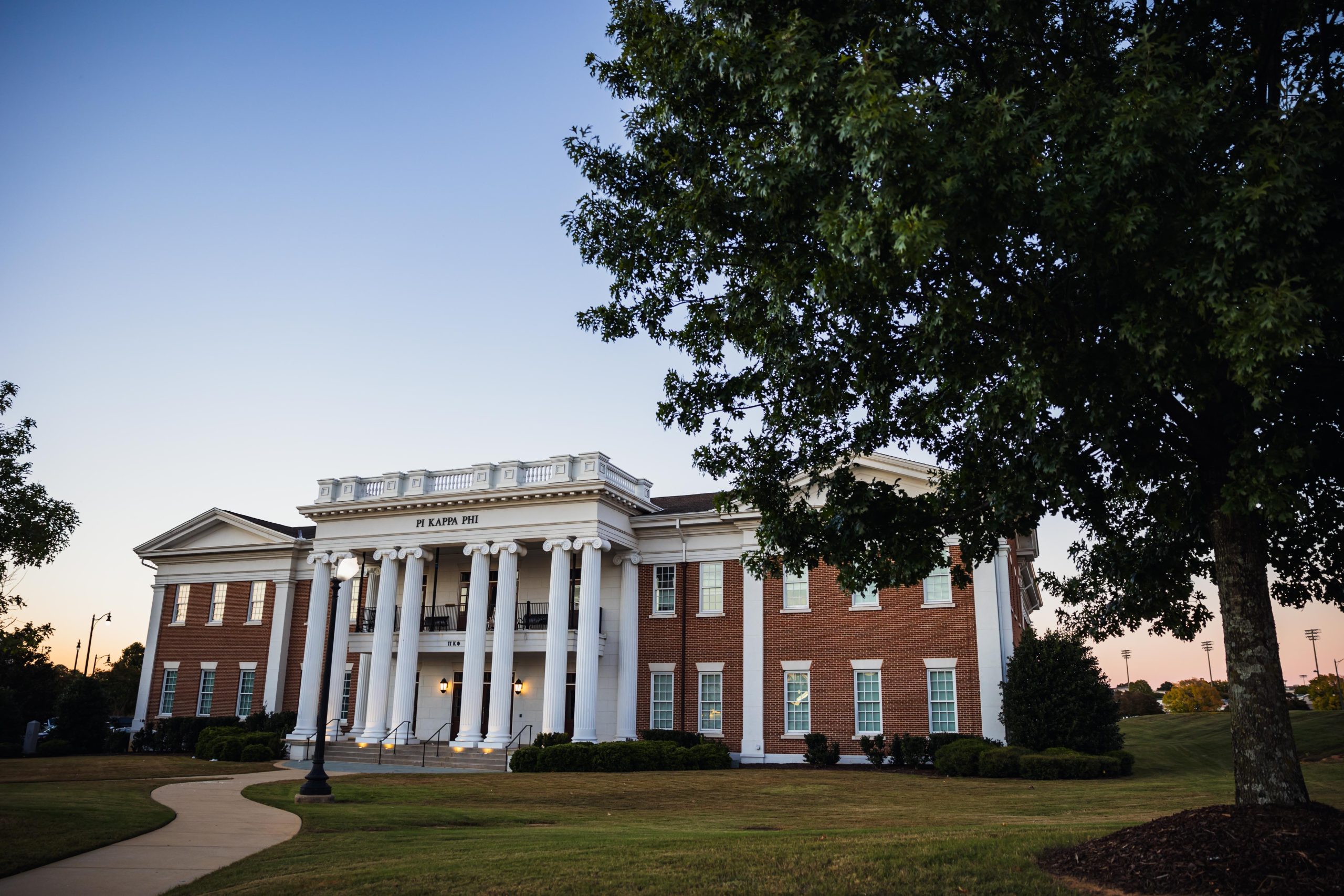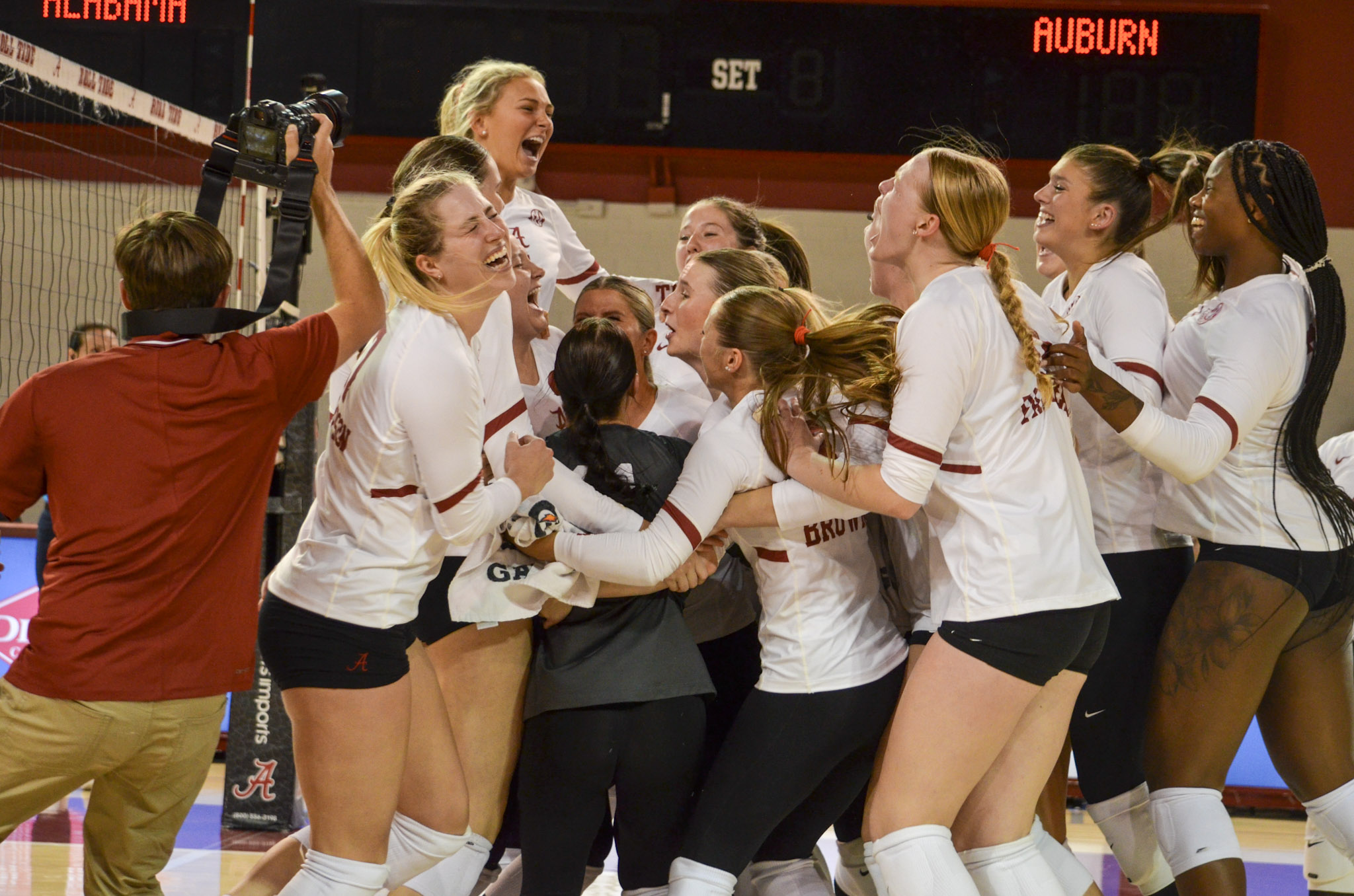Alabama basketball’s historic season came to a bitter end, but the future brightly awaits
April 19, 2023
A program-record 31 wins, two weeks at No. 1, including the final regular season poll. This season was an unprecedented display of dominance never before seen in Alabama’s storied history.
On March 24, with the clock ticking down, the emotions of an impassioned season came to a head at Louisville, Kentucky’s KFC YUM! Center.
After a missed three from Alabama guard Rylan Griffen and a subsequent intentional foul on San Diego State University forward Nathan Mensah’s defensive rebound, it was set in stone.
The nation’s top overall seed had been toppled in the Sweet 16 by Brian Dutcher’s fifth-seeded Aztecs.
In the locker room after the game, the environment was somber, but not to the point one would’ve expected. In an unlikely scene, a few cracked smiles even pierced the aura of disappointment surrounding the team’s early March Madness exit.
Perhaps greater than the overwhelming sense of dissatisfaction was something unexpectedly positive: the reflection of accomplishment.
Regarding on-court success, what’s not to ardently cherish?
“I’ll say it’s one of the most memorable seasons ever. It’s not easy to win the regular season, the SEC tournament in the same year and make a Sweet 16 run,” Alabama head coach Nate Oats said after the game. “I love the group, they love each other, and it’s just really disappointing that it’s ending early. But I think it’s one of the most memorable seasons in Alabama history, and they can walk out of here with their heads up.”
For Bryan Passink, Crimson Tide Sports Radio Network analyst and former scholarship player in the 1990s under David Hobbs, a disappointing conclusion shouldn’t shroud the team’s overall success.
“I don’t think it was a letdown in any way,” Passink said. “The NCAA tournament is a one and done situation, game in and game out. It’s not a seven-game series like the NBA. It’s why they call it March Madness, because you never know what can happen. A number one seed didn’t make it to the elite eight. A number one, two or three seed didn’t make it to the Final Four.”
For former Alabama head coach Wimp Sanderson, who served as the team’s leader from 1981-1992, that sentiment remains evergreen.
“You always get disappointed when you get beat in the NCAA Tournament,” Sanderson said. “But as far as the overall part of the season, they beat some good teams. Sixteen and two in the league is hard to do. … That’s just what life is. I thought they had a great year.”
It’s no secret that Alabama has struggled advancing deep into the tournament. In Sweet 16 appearances, the Crimson Tide boasts a measly 1-9 record — the worst winning percentage of any program with at least six appearances all-time. Passink said that could soon change.
“I’m very confident that this program is going to make a Final Four, and it may happen in a year that we don’t see it coming,” Passink said. “If you’re in it every year, you’re going to have a chance, and even though this may have been Alabama’s best team in school history, I think a team that maybe isn’t the greatest of all time could make a run to the final four, even compete and win a national championship.”
Sanderson said the difficulty of making it to the Sweet 16 itself shouldn’t be overlooked by Alabama’s often spoiled fanbase.
“Sometimes the matchups are more difficult,” Sanderson said. “Sometimes your seeding is not as good as you want it to be. When I was coaching, we ended up playing the team that won the national championship two or three times in the Sweet 16. I just think that people expect you to be good now. You have to be good six nights in a row.”
Under the guidance of Nate Oats, Alabama basketball is expected to be amongst the nation’s elite — an attitude that hasn’t been one of consistent prominence since Sanderson’s departure in 1992. Passink said he thinks Alabama is back to those days.
“If you’re a team that’s competing for SEC titles and in the mix to win the SEC, you’re one of the best teams in the country. Right now, Alabama is that under Nate Oats.”
Passink said this creates the perfect environment for recruiting.
“The player development at Alabama is as good, if not the best in college basketball,” he said. “That’s why you’re able to attract the Brandon Miller and Noah Clowney types of the world, because they want to win.”
That same success has suddenly made the Druid City a hotbed for coaching assistant talent, with longtime Alabama assistants Bryan Hodgson, Antoine Pettway and Charlie Henry all grabbing head coaching jobs in the offseason — a testament to the bolstered reputation Oats has built in his short time at the Capstone.
“It’s not an accident that Alabama has had the success they’ve had with the coaching staff that they’ve had,” Passink said. “Nate Oats is considered one of the top young head coaches in college basketball, but he hasn’t done it alone. He’s done it with a great staff. And even though the names will change, he is going to get a high-level staff because he understands how important that is, and guys want to be affiliated with it.”
Now entering his fifth year, the 48-year-old head coach has some decisions to make, but if history is any indication, they’ll likely be the correct and necessary ones.
“He is always looking to improve his coaching, ere are coaches in college and pro basketball that are paying attention to what Alabama is doing. And I love the fact that even though the success has been unprecedented over the last few years, he wants to improve, tweak some things and get better. He’s always in the learning mode and I think that’s a big reason why he’s great.”
The lights may be brighter than ever before, but the future of Alabama basketball might just outshine them all.










